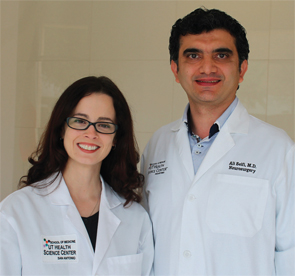
Many doctors do not want their interaction with a patient recorded without their permission.
Image Credit: Africa Studio/shutterstock.com
Over the years, cell phones have evolved from purse-size behemoths to the size of a wristwatch. In addition, they have moved from basically a portable telephone to the smartphones of today. Both the changes in size and the added functions have resulted in new concerns for physicians.
“We had a family meeting about two years ago to discuss a patient, and I noticed someone was recording the conversation on their iPhone without asking me if it was okay,” says Ali Seifi, MD, FACP, assistant professor of neurosurgery/neurocritical care at the University of Texas Health Sciences Center at San Antonio (UTHSCSA). “I wasn’t sure if it was legal for the family to be recording these discussions about the patient. I also did not know if I could ask them to get my permission first.”
Smartphone Ownership Growth
These concerns are only going to grow. A fact sheet issued by the Pew Research Center in 2014 notes that 58% of Americans owned a smartphone and that level rose to 83% among young adults. These can be used as recording devices at the touch of a button. Smart watches can make a surreptitious recording of conversations even less noticeable.1
“With smartphones being in the hands of almost everybody, it is becoming more likely that someone is going to secretly record our interactions,” notes Dr. Seifi. “Medical professionals have to start thinking about the ethical and legal aspects of this.”
To try to stimulate conversations on these issues, Dr. Seifi joined with Michelle Rodriguez, JD, and a medical school student at UTHSCSA, and Jason Morrow, MD, PhD, from the school’s Center for Medical Ethics and Humanities, to look at these questions. The result was a Viewpoint article in the April 28, 2015, issue of the Journal of the American Medical Association.2
Decision on Taping Difficult for Doctors
There are probably as many opinions on patient recording in general, and surreptitious recordings in particular, as there are practitioners. It is a personal decision.
“I would feel very uncomfortable if my patient taped our conversations without asking me,” says Jonathan Hausmann, MD, a fellow in rheumatology at the Beth Israel Deaconess Medical Center in Boston. “I would not want to unknowingly be recorded by my friends or by anybody else. I think we all have a right to privacy, and I don’t want anyone to record me unless I give permission. Patients are no different.”
Many physicians just don’t feel comfortable with the technology and don’t understand the implications. Others think that recording changes the interaction, because the doctor may become more formal and may use medical jargon instead of easily understood words, knowing that others may review the interaction.
Another concern is the use of the recording if there are adverse outcomes. If the doctor doesn’t mention a zebra, might that lead to a malpractice claim and/or overtreating in a defensive medicine mode?
“The doctor–patient relationship is largely based on trust,” says Dr. Seifi. “I wonder if a patient is secretly recording me because they have lost that trust in my abilities?”
Assessment Required
As with many other things in medicine, a thorough and complete assessment is required before you plan your next moves. You should no more leap to conclusions about this aspect of care than you do any other.

Dr. Seifi (right) with Dr. Rodriguez.
“Patients may have different reasons for wanting to record the encounters with their physician, and it may not necessarily stem from lack of trust,” notes Dr.

Dr. Hausmann
Hausmann. “Sometimes it may be that they trust me to the point that they want to have a verbatim record of what I am saying.”
The patient may feel the need to secretly memorialize the interaction to refer to it later. Both physicians note that it isn’t at all unusual for a patient to say they understand the treatment plans even when they don’t. They just don’t want the doctor to think less of them or are seeking the approval of the practitioner.
“Other patients, especially the younger ones, may tape your interactions without thinking about it,” Dr. Hausmann says. “Some people lead very public lives and document every facet of it to Facebook or Twitter or other social media platforms. To them, the medical interaction is no different.”
“Fire” the Patient?
There are times when the physician may be so concerned they even consider whether the relationship is viable or if they should “fire” the patient.

Dr. Sastow
“If they say they don’t trust the doctor or that they are looking for evidence of how you treated them improperly, then maybe the patient shouldn’t be sitting in front of you,” says Gary Sastow, JD, a partner at Brown, Gruttadaro, Gaujean, & Prato in White Plains, N.Y. “A person coming in with the purpose of catching you doing bad things on tape doesn’t bode well for the relationship.”
Privacy Concerns
Another concern is patient privacy and, as with almost every privacy issue in the U.S., how secretly recording your doctor fits in with the provisions of the Health Insurance Portability and Accountability Act (HIPAA). If it is the patient doing the recording, there are no concerns.
“While HIPAA regulations give the burden for protection of health information to the doctor, it also says the patient always has the right to disclose their own information,” says Dr. Sastow. “If they choose to play it for their family, friend, other physician or even to the Internet, the doctor would have no legal concerns because it is their information.”
This seems to hold even if the patient’s family member does the posting, as long as the patient has given their consent to include them in the conversation.
“This is still a developing area of law, but to my current understanding, it is the patient’s information to do with as they see fit,” says Dr. Rodriguez, co-author of the JAMA article. “Even when a third party records the encounter and publishes it, as long as the patient gave their consent, it is out of the doctor’s hands. There may be legal, and almost certainly personal ramifications for the third party, but at that point the doctor does not have any privacy concerns.”
When the Patient Is Incapacitated
Where the legalities get a little murkier is when the patient is incapacitated and consent for disclosure passes to a surrogate under state laws. There are times when multiple family members may be attending patient conferences.
What happens when an attendee, other than the surrogate, tapes and publishes the encounter? This may be an issue when multiple caregivers or those at a distance from the physician all need to be on the same page.
‘I would not want to unknowingly be recorded by my friends or by anybody else.’ —Dr. Hausmann
As long as the physician is unaware of the recording, the attorneys think there is very limited liability. However, there is currently no case law on this subject to give more definitive guidance.
If you find your patient is surreptitiously recording your interactions, you can ask them to stop. However, should you not know about the taping prior to its release, your response is likely dependent on where you live.
1- or 2-Party States
“In so-called ‘one-party’ states, only one person in the conversation needs to give their consent for the recording to be legal,” notes Dr. Rodriguez. “On the other hand, two-party states require the consent of all participants in the conversation. Otherwise, the person doing the recording could be charged criminally under that state’s wiretapping statutes.”
In real life, though, a physician’s actions are limited, even in two-party states. Very few doctors will want to file a criminal complaint against a patient.
“If you want to protect yourself in two-party states, you can include a clause in your patient paperwork or on waiting room signage stating that recording is not allowed without your consent,” notes Dr. Sastow. “Check with a local attorney before instituting this since the laws may require certain wording, font size, etc.”
These interventions may not work as well in one-party states because only the person recording would need to give consent. However, some jurisdictions may limit the admissibility of the recordings should there be a court action.
Practitioners should begin thinking about what their personal views are on patients taping interactions in general and doing so secretly in particular. Working through the personal and ethical issues beforehand should make the encounter go smoother when (not if) it happens.
“I don’t think we are to the point yet where we should assume all, or even a small percentage, of our patients are recording the medical encounter,” says Dr. Hausmann. “But I also can’t say I would be surprised when it happens. As the technology gets smaller and smaller to where you can record from something as unobtrusive as an Apple Watch, it is very probable that some of our patients will be doing it. However, it remains to be seen whether this will lead to increased compliance, better understanding of their disease or more litigation.”
Kurt Ullman is a freelance writer based in Indiana.
References
- Pew Research Center. Mobile technology fact sheet.
- Rodriguez M, Morrow J, Seifi A. Ethical implications of patients and families secretly recording conversations with physicians. JAMA. 2015 Apr 28;313(16):1615–1616.


